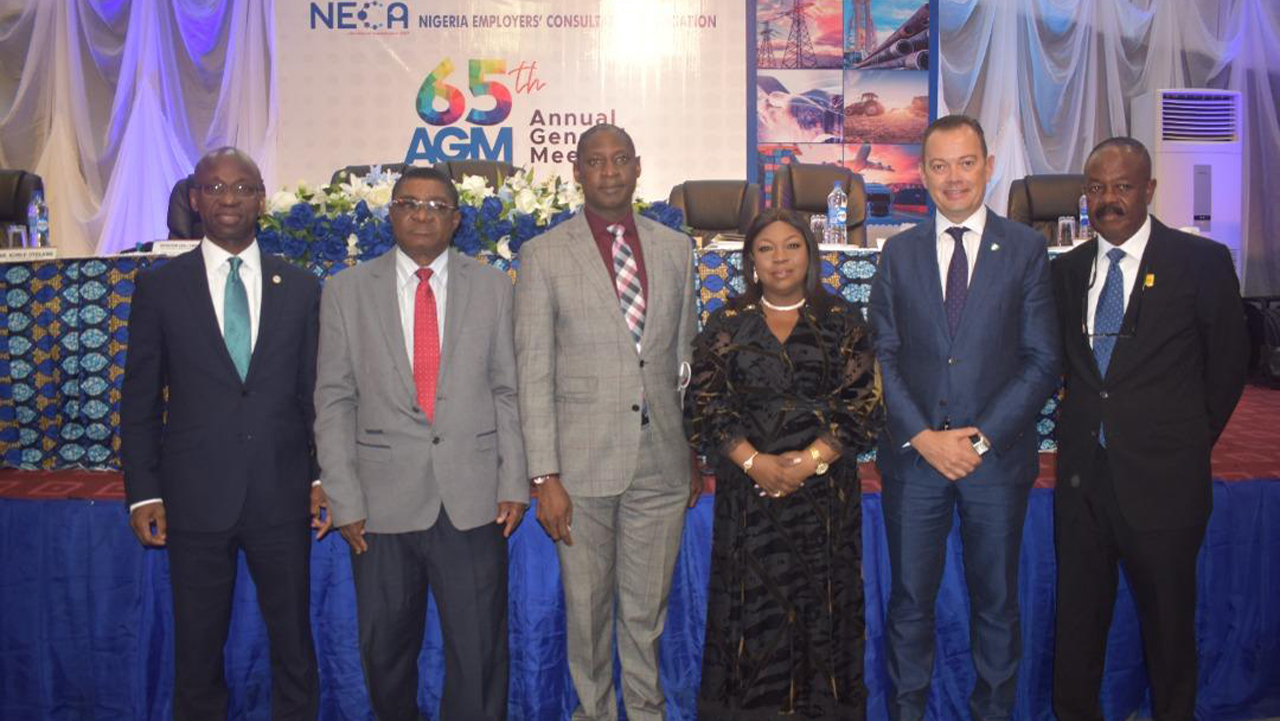
With the country in need of about $2.9 trillion (N87 trillion) in 30 years to close its infrastructural gap, NECA noted that blocking existing leakages in the system could aid the generation of such revenue.
This is just as the body in a recent survey by the Organised Private Sector of Nigeria (OPSN), revealed a worrisome loss of over N3.06 trillion yearly to setbacks at the various seaports, particularly the Apapa seaport.
President of NECA, Taiwo Adeniyi, who disclosed this yesterday during its 65th yearly general meeting, said over three years after the Presidential Executive Order on the promotion of transparency and efficiency in the business environment to ease operational hiccups being experienced at the Apapa Seaport, much is yet to be achieved.
He argued that if the humongous amount was added to losses from daily crude oil theft, it goes without saying that the government should redouble efforts at blocking all avenues of revenue leakages and also rein in corruption rather than burden businesses with more levies and taxes.
He said over the past 10 years, organised businesses had drawn the attention of governments to myriads of challenges facing the sector, noting that most of the challenges have remained unresolved by successive governments.
The NECA boss said while the sector admitted that some of the challenges facing organised businesses were beyond the control of the government and enterprises, in many cases, he insisted that the challenges were aggravated by the insensitivity of regulatory agencies of governments at various levels.
The employers’ body reiterated recommendations made to the government over the past years, stating that implementing the recommendations would assist the government in enunciating programmes and policies that would galvanise accelerated development.
On infrastructural development, Adeniyi argued that much had not been achieved, following the signing of Executive Order 07, which aimed at fostering a partnership between the private sector and government.
He urged that more focus should be given to other critical infrastructures that will promote the real sector.
He said with the contending need for scarce funds in all sectors, the government should sustain the enlistment of the private sector as a critical partner in the onerous task of infrastructural development.
The body called for alignment of fiscal and monetary policies in order to address the challenges associated with rising debt profile, mitigating the rising cost of doing business, and increasing tariffs, taxes, levies and charges, among others.
According to NECA, while employers and business owners crave to invest and promote the development of Nigerian businesses, with the potential to attract Foreign Direct Investment (FDI), the misalignment of the policies has caused unnecessary distress to them, with many relocating to other countries with business-friendly policies.
NECA said while the government has the prerogative to formulate policies, programmes and laws, it was imperative, more than ever before, that it consults widely and regularly with representatives of organised businesses.
It stated that rather than the ongoing cosmetic engagement and public hearings, a formal engagement platform should be created which would serve as an institutional sounding board for government policies and programmes before they are formalised for implementation.
To enable organised businesses to play the critical role bestowed on them in the National Development Plan 2021-2025, NECA called that urgent steps should be taken to address its myriad of issues.
Additionally, with the upcoming elections in February 2023, NECA urged that the government address headlong key challenges, mostly pertaining to macroeconomic vulnerabilities.






